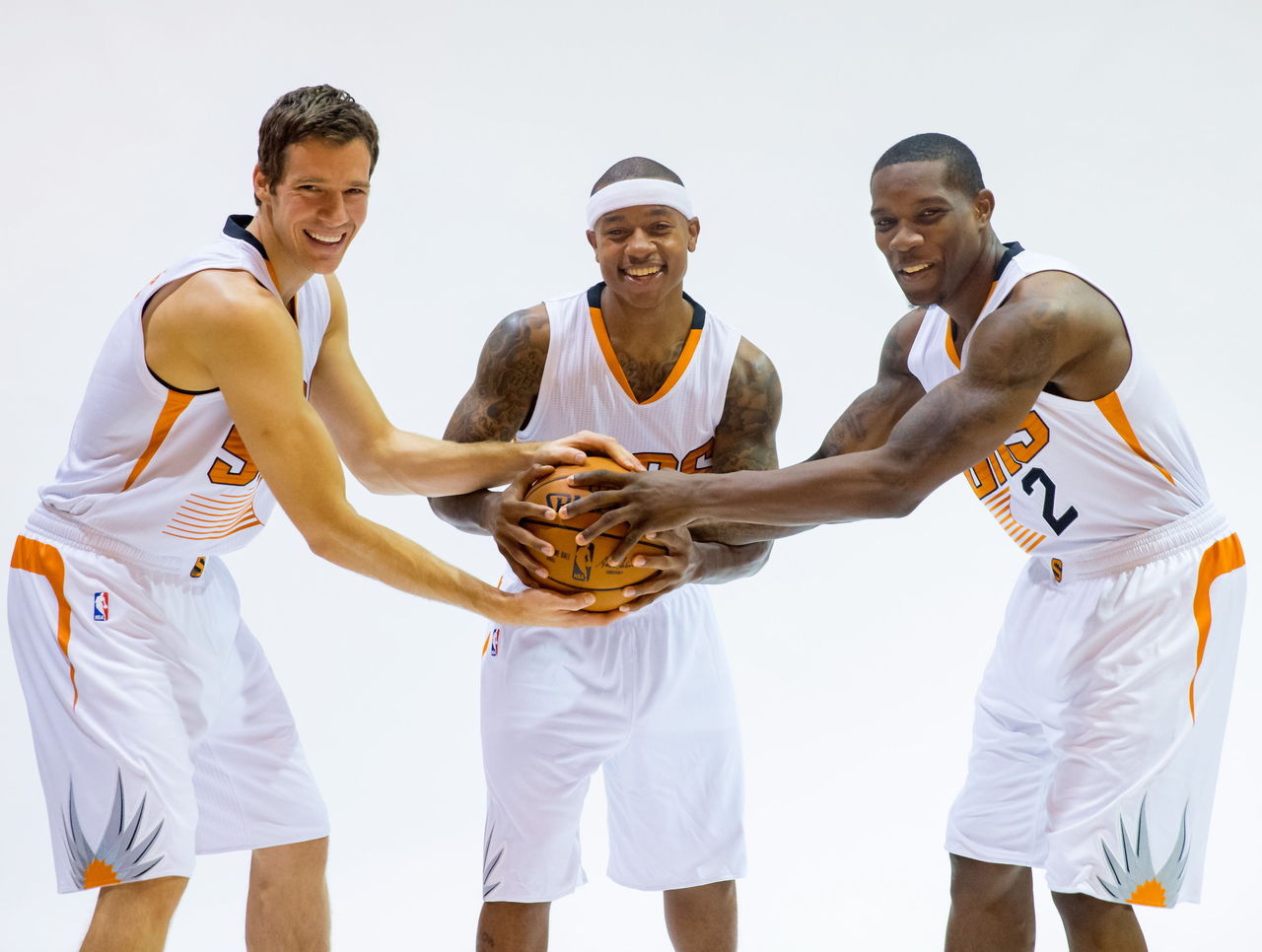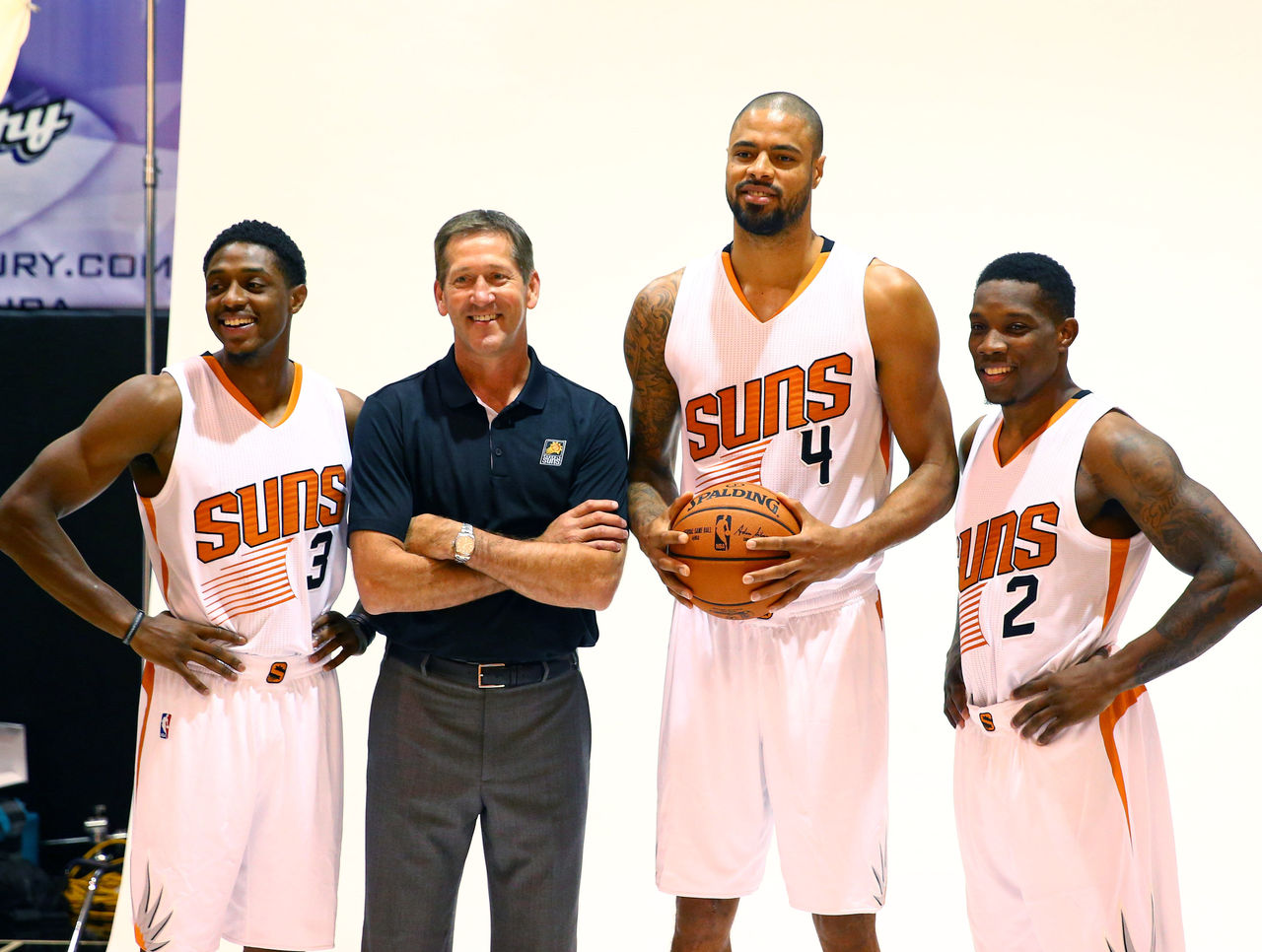The happy accident: Assessing the Suns' rebuild
Welcome to theScore's preview of the 2015-16 NBA season. Visit ourseason preview hub for comprehensive coverage of all 30 teams.
Coming into the 2013-14 season, the Phoenix Suns looked poised to embark upon a rebuild.
Having traded center Marcin Gortat to the Washington Wizards that summer, what was left of the Suns' roster consisted of little more than spare parts and unproven prospects.
The Suns were a popular choice to finish last in the West, and they were expected to battle the Philadelphia 76ers for the league's worst record. They were supposed to chase Andrew Wiggins, Jabari Parker, and lottery balls - nothing more.
Instead, the Suns won 48 games and chased a playoff spot in the hyper-competitive Western Conference (they would have finished third in the East). Phoenix ultimately missed the postseason, but changed its fate, flipping the script on a rebuild.
The two-point guard tandem of Goran Dragic and Eric Bledsoe torpedoed the Suns' tank, captaining a thrilling up-tempo offense that ranked eighth best in the NBA. Dragic tortured opponents by running high pick-and-pops with Channing Frye, while Bledsoe was a terror in transition and a pestering menace on defense.
Together, Bledsoe and Dragic gave Phoenix a tangible future and a hope the Suns could make the playoffs for the first time since Steve Nash left town. There wasn't a superstar to take up Nash's mantle, but they had one of the best backcourt combinations in the league.

To put it lightly, the 2014-15 season was nothing short of a disaster.
The Suns went into last summer with the intention of adding to their up-and-coming core. They signed Isaiah Thomas on the cheap while allowing Frye to walk, which paved the way for an emerging Markieff Morris in the starting lineup. Along with a cleaner bill of health for Bledsoe, the Suns were poised to improve.
But once again, prognosticators were wrong about the Suns. Instead of pushing 50 wins and making the playoffs, the Suns won just 39 games, while dramatically reshaping their roster.
It became apparent from the start that employing three starting-caliber point guards was overkill. Complaints about touches cropped up only three weeks into the season, and the untenable arrangement eventually led Dragic to force his way out of Phoenix.
Replacing Frye also turned out to be more difficult than the Suns had imagined. Morris was a better all-around player than Frye, but he wasn't as prolific a 3-point threat, which detracted from the Suns' signature play from the season prior.
Poor luck also played a factor, as the Suns lost five games at the buzzer, while sporting a miserable record of 6-14 in games decided by less than five points.
The end result: Thomas and Dragic were moved at the trade deadline, Morris stalled in his development, and a much-bleaker future outlook in Phoenix.

Unpredictable as ever, the Suns took another surprising turn this summer. Instead of rebuilding, Phoenix opted to once again add to its fleeting core.
The Suns rekindled the two-point guard approach by re-signing Brandon Knight to a maximum deal. Knight struggled after the Suns brought him aboard in a midseason trade last year, but the promising 23-year-old has the range (38.9 percent from deep) and pick-and-roll chops to replace most of what Dragic brought to the team.
Phoenix also explored the free-agency route. It went hard after the biggest free agent on the market in LaMarcus Aldridge, only to finish runner-up to the San Antonio Spurs.
But the Suns did come away with a top-five center in Tyson Chandler, who should serve as their defensive anchor, while chipping in on offense as a lethal pick-and-roll finisher.
If everything goes right, the Suns could emerge as a darkhorse contender in the West.
But that's exactly the point - they can't keep hoping for everything to go right as it did two seasons ago. Even after shelling out over $100 million in contracts this summer, the Suns are still firmly a tier below the true contenders in the West, and they still lack anything close to a superstar.
That's where the questions come in about Phoenix's rebuild. The pessimist sees the Suns chasing a fleeting shadow, that their accidental success was just that - accidental. The optimist sees the Suns as a competitive young team with plenty of flexibility while following a proven blueprint for success.
What will actually become of the Suns' rebuild, however, is anyone's guess.